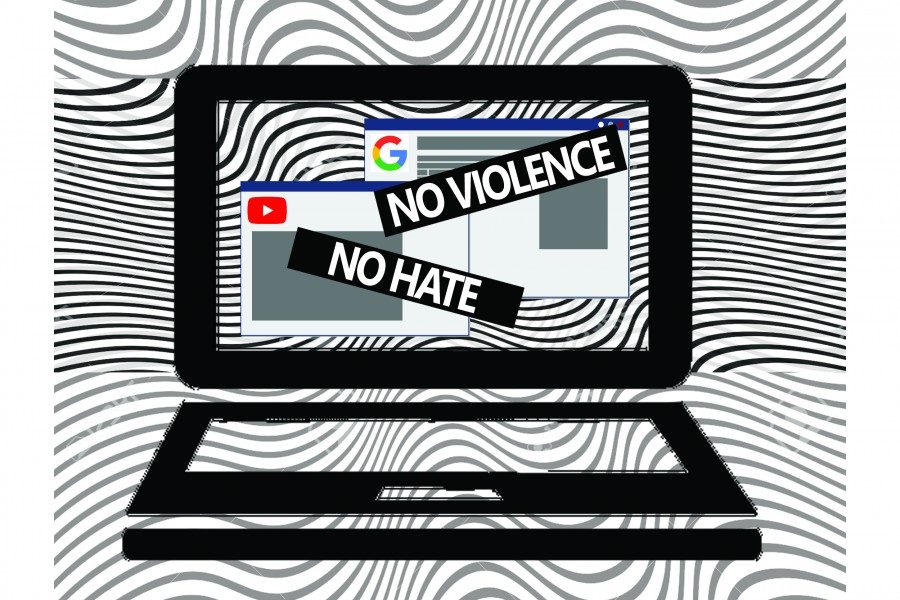Tech companies should reject anti-Semitism on their platforms
Following a year filled with fake news, neo-Nazi rallies and waves of white nationalism, the powers that be are finally taking a stand by definitively stating that Nazis are bad. For those feeling excited that this president’s administration, which somehow botched every chance to denounce anti-Semitism, has finally done the right thing in this regard, never fear: it still has not.
Instead, there has been a wave of internet-based retribution, where tech companies like Twitter and Youtube are banning hate groups for violating the Community Guidelines.
This banning fervor that began in early 2017 is seen as a response to the Charlottesville alt-right protests back in April, as well as the prevalence of hate groups spreading toxic conspiracies in the wake of the Florida school shooting. This move, while obvious to people who think that Nazis represent the worst of humanity, was still polarizing to some due to the possible implications and legality of singling out a particular ideology.
The Alex Jones channel with billions of views is frozen. We have been told it will be deleted tomorrow and all 33 thousands videos will be erased. We just set up this new page subscribe if you want to see what the SPLC wants censored.. https://t.co/0sGkMNUCPt
— Alex Jones (@RealAlexJones) March 4, 2018
America has very liberal laws pertaining to freedom of speech, which is great when discussing issues like political dissent and satire against a political regime. It is the foundation on which the free press and religious tolerance are built. It also results in a country where people who are unequivocally terrible can chant slurs while being protected by the Constitution.
Ironically, the basis for U.S. idealism has allowed a world where in Germany it is illegal to deny the Holocaust, and yet in the Land of the Free it is legal to wear swastikas and chant, among other brilliant phrases, “Jews will not replace us.”
Luckily, companies realized that just because hate groups are protected from government persecution, that does not safeguard them from retribution by the American public. Tech platforms unfortunate enough to host anti-Semitic groups like Atomwaffen on Twitter realized any association with Nazism is bad for branding. They made the calculated risk of deciding to lose the “fine people” posting on anti-Semitic forums, likely thinking that literally anything is better than an association with neo-Nazis.
Unsurprisingly, these actions resulted in a variety of responses from the left and right, many of whom rightfully agreed that racists who incite violence are bad, while others like the alt-right group American Renaissance referred to their suspension on Twitter as “censorship.”
In the Trump Administration, Federal Communications Commission Chairman Ajit Pai referred to these suspensions as “a double standard when it comes to suspending or de-verifying conservative users’ accounts.” From this comment, Chairman Pai appears to be willfully ignorant as to why Twitter would suspend such wonderful people, or Übermenschen, as I am sure they would prefer it, like the open white supremacist Richard Spencer. He either has a serious lack of deductive reasoning, or he has trouble discerning the nuanced differences between some Trump supporters and Nazis.
We’re committing Twitter to help increase the collective health, openness, and civility of public conversation, and to hold ourselves publicly accountable towards progress.
— jack (@jack) March 1, 2018
As a student at Tulane, the blows to neo-Nazism should be encouraging because of their ability to limit hate speech. Being a school with a larger-than-average Jewish population, lessening the risk of anti-Semitism should always be happily accepted. And, while truth and democracy thrive in the light, maybe sometimes those discussions that end gleefully with “Sieg Heil” could be kept away for everyone’s benefit.
This is an opinion article and does not reflect the views of The Tulane Hullabaloo. Jonathan is a sophomore at Newcomb-Tulane College. He can be reached at jkrantz@tulane.edu.
Your donation will support the student journalists of Tulane University. Your contribution will allow us to purchase equipment and cover our annual website hosting costs.




willie • Mar 15, 2018 at 6:43 pm
this article is typical zio kikery. Anti free speech to shut down criticism of israheili murder and torture.
To identify the truly sick racists google: chief rabbi of Israel says only purpose of goyim is to serve jews, life of goyim worth same as donkey. Netanyahu says this jerk is the greatest mind of this generation.
http://www.timesofisrael.com/5-of-ovadia-yosefs-most-controversial-quotations/